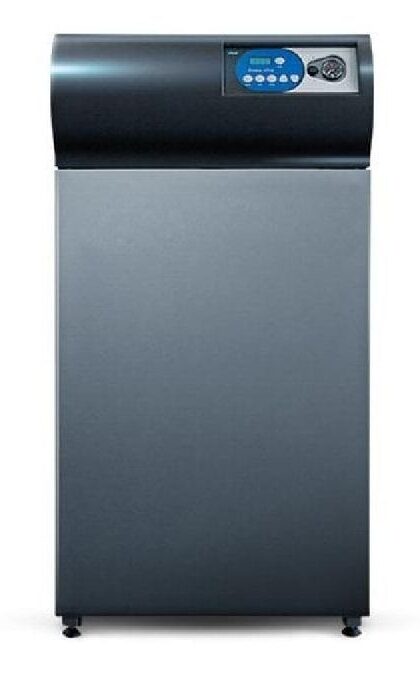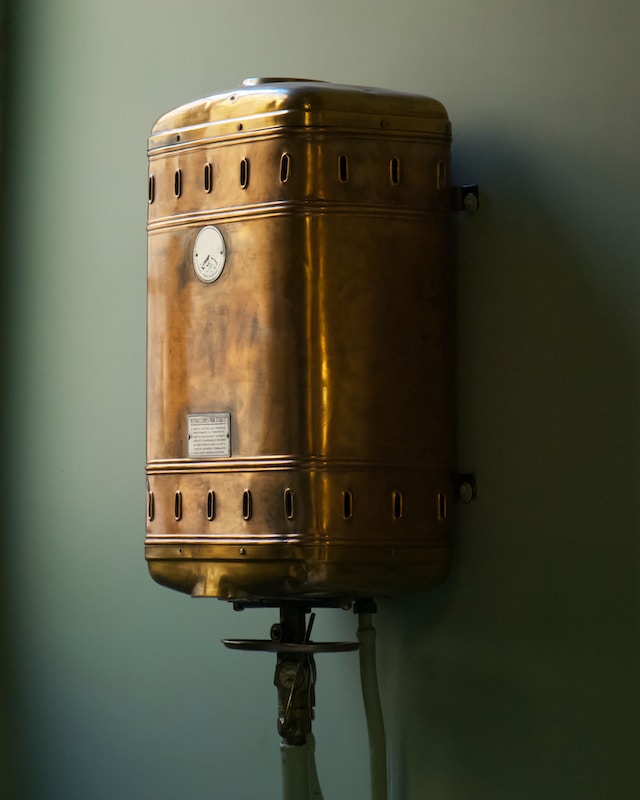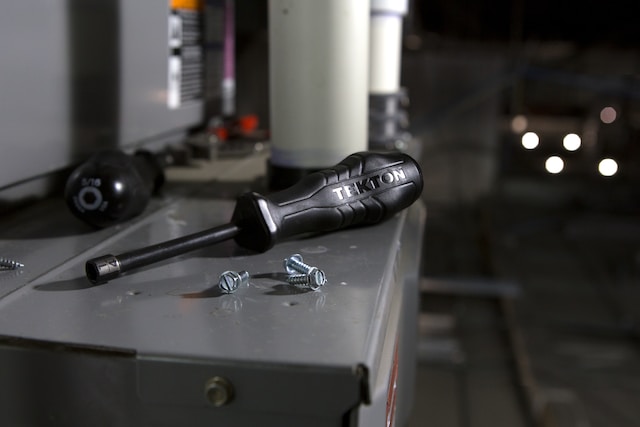The typical boiler lifespan can vary significantly depending on several factors, including the type of boiler, its usage, maintenance and the quality of its installation.
So, how long do boilers last?
The quick answer is that the average boiler life expectancy is anywhere between 10 and 15 years.
There’s more to it, though, as multiple factors are at play here.
With that in mind, let’s go over some general guidelines for the expected lifespan of different types of boilers and the tell-tale signs you need a boiler replacement.
Table of contents:
- How long does a boiler last?
- How do you know when your boiler needs replacing?
- How long does it take to replace a boiler?
- Final-thoughts

How long does a boiler last?
On average, your boiler should last between 10 and 15 years. However, with proper maintenance, it could last you even longer – which is great news!
Let’s take a closer look at how long should a boiler last depending on the type.
How long do gas boilers last?
On average, well-maintained standard gas and oil boilers can last anywhere from 15 to 30 years. Regular maintenance and prompt repairs can extend their lifespan.
How long do combi boilers last?
Combi boilers are known for their space-saving design and efficiency. They typically last around 15 to 20 years with proper maintenance.

How long do condensing boilers last?
High-efficiency condensing boilers are more efficient and tend to last longer than standard boilers. With proper maintenance, they can last 20 years or more.
How long do electric boilers last?
Electric boilers often have a longer lifespan compared to gas or oil boilers, typically lasting 20 to 25 years or more. They are generally simpler in design and have fewer components that can wear out.
Several factors can influence the lifespan of a boiler. Here are the main ones.
Maintenance
Regular maintenance, such as annual inspections and cleaning, can significantly extend a boiler’s life. Neglecting maintenance can lead to premature failure.
Water quality
The quality of the water in the heating system can affect a boiler’s lifespan. Proper water treatment and regular system flushing can help prevent corrosion and scale buildup.
Usage
How often the boiler is used and the demands placed on it can affect its lifespan. A boiler used for heating alone may last longer than one used for both heating and hot water production.
Installation quality
A properly installed boiler is less likely to develop problems. Ensure that a qualified professional installs your boiler correctly.
Brand and quality
The brand and quality of the boiler can influence its durability. It should go without saying that high-quality boilers from reputable manufacturers tend to last longer.
Environmental factors
The environment in which the boiler runs can also play a role. Naturally, extreme weather conditions or exposure to corrosive elements can affect its lifespan.
To maximise the lifespan of your boiler, it’s essential to schedule regular maintenance by a qualified technician, address any issues promptly and consider upgrading to a more efficient model when the time is right.
What’s more:
Always consult the manufacturer’s recommendations and guidelines for your specific boiler to ensure its longevity.
How do you know when your boiler needs replacing?

Knowing when it’s time to replace your boiler is crucial to ensure the safety, efficiency and comfort of your home.
Let’s take a closer look at how often should a boiler be replaced and some signs that may indicate your boiler needs replacing:
Age
Consider the age of your boiler. If it’s approaching or has exceeded its expected lifespan, you should start thinking about a replacement, even if it seems to be functioning well.
Frequent repairs
If you find yourself calling for boiler repairs all the time or the cost of repairs is becoming prohibitive, it might be more cost-effective to invest in a new boiler. Frequent breakdowns are a sign that the boiler is reaching the end of its life.
Inefficient operation
An inefficient boiler will mean higher energy bills for you and your family – and that’s bad news. So, if you notice a significant increase in your heating costs, or if your boiler has a low energy efficiency rating, it might be time to replace it with a more energy-efficient model.
Uneven heating
If some rooms in your home are consistently too hot or too cold, and the boiler can’t supply consistent heat, it could be a sign of a failing boiler.

Yellow flame or soot
If you have a gas boiler and you notice the flame is yellow instead of blue, or if you see soot or other signs of incomplete combustion, it could indicate a dangerous issue that requires immediate attention. This could be a sign of a carbon monoxide leak, which is extremely hazardous.
Strange noises
Unusual noises such as banging, whistling or gurgling coming from the boiler can be a sign of internal problems. While not always indicative of a need for replacement, they should be checked by a professional.
Visible rust or corrosion
If you notice extensive rust or corrosion on the boiler or its pipes, it may be a sign that the boiler is deteriorating and nearing the end of its service life.
Safety concerns
If the boiler poses safety concerns, such as frequent pilot light outages, gas leaks or the presence of carbon monoxide, it’s imperative to replace it at once for your safety and the safety of your household.
Inadequate hot water
If your boiler also provides hot water, and you’re experiencing a consistent lack of hot water or a decline in hot water quality, it may be time for a replacement.
When considering boiler replacement, consult with a qualified heating professional who can assess your specific situation, recommend suitable replacement options and ensure proper installation.
The thing is:
Replacing an inefficient old boiler with an energy-efficient modern boiler can lead to cost savings, improved comfort and enhanced safety.
How long does it take to replace a boiler?

Replacing a boiler can take anywhere from one to three days. We should point out that unexpected complications or additional work, such as repairing or replacing damaged pipes or radiators, can extend the timeline.
What’s more:
The time of year can also affect scheduling, as HVAC contractors may have busier periods during extreme weather seasons.
Here’s a rough breakdown of the process.

Step 1: Removing the old boiler
Removing the old boiler is typically the most time-consuming part of the process. This can take a day or more, depending on the complexity of the removal, especially if there are significant modifications needed to the existing system.
Step 2: Installing the new boiler
Installing the new boiler involves connecting it to the existing heating system, including the pipes, radiators and controls. This step can take a day or more, depending on the complexity of the installation and any modifications needed. A like-for-like replacement in the same location will be faster than changing boiler types and/or sizes.
Step 3: Testing and commissioning
After installation, the new boiler needs to be thoroughly tested to ensure it runs correctly and safely. This includes checking for leaks, verifying proper combustion and adjusting settings as needed. Depending on the circumstances, testing and commissioning can take several hours to a full day.
Step 4: Final inspection and cleanup
Next, once the installation is complete, the HVAC contractor will perform a final inspection to ensure everything is functioning as it should. They will also clean up the work area and remove any debris.
Step 5: Explanation and handover
Finally, the technician will provide you with instructions on how to use and look after your new boiler. At this point, they’ll also address any questions or concerns you may have.
And that’s it – you can now enjoy your brand-new boiler!
Final thoughts

A well-maintained, energy-efficient boiler is essential to the well-being and comfort of your household.
What’s more:
It’s going to help you save money on your energy bills. And in the midst of an ongoing cost of living crisis, that’s no small matter.
The good news is:
Now that you know the answer to the question ‘how long do boilers last’ and how to tell when it’s time to replace yours, you’re well prepared to make the change at the right time without breaking the bank.


















